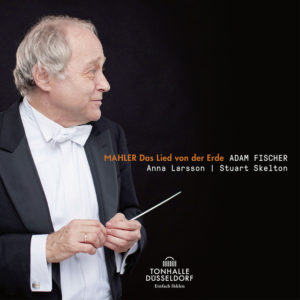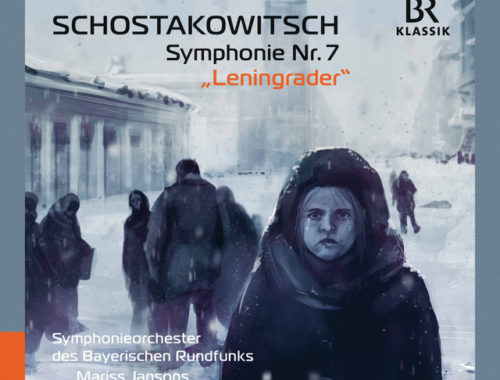GRAMOPHONE Review: Mahler Das Lied von Der Erde – Larsson, Skelton, Düsseldorfer Symphoniker/Fischer
 Adam Fischer’s fascinating (if slightly eccentric) liner notes speak of the words of Das Lied von Der Erde being almost incidental to the mood, of the music being significantly more important than the texts that inspired it. If the voice is fighting the orchestra, he says (one thinks primarily of the first song and the youthful riders section of the third), then that is Mahler’s intention. Tell that to the singers, I think to myself. But he does acknowledge, rightly, that orchestras are more powerful beasts than they were in Mahler’s day and that choosing singers for live performance is perhaps more exacting than it was.
Adam Fischer’s fascinating (if slightly eccentric) liner notes speak of the words of Das Lied von Der Erde being almost incidental to the mood, of the music being significantly more important than the texts that inspired it. If the voice is fighting the orchestra, he says (one thinks primarily of the first song and the youthful riders section of the third), then that is Mahler’s intention. Tell that to the singers, I think to myself. But he does acknowledge, rightly, that orchestras are more powerful beasts than they were in Mahler’s day and that choosing singers for live performance is perhaps more exacting than it was.
All of this may account for the more ‘integrated’ vocal and orchestral sound here and certainly accounts for the omission of texts – a decidedly odd decision, despite Fischer’s claims, and one which certainly won’t go down well will buyers. Whatever the ‘mood’ at any single point in this piece, it is the words which pinpoint the specifics of particular moments, of particular imagery, and which are vital to a full appreciation of the piece for non German speakers, no matter how well you know it.
There is no question that the impression of a lyric symphony with obbligato voices is what Fischer is striving for and notably achieves here. There is a transparency throughout and all the ‘vocal’ soloists within the orchestra – not least the wonderfully atmospheric oboe and flute soloists in Der Abschied – shine brightly.
That said, the excellent Stuart Skelton has his work cut out in the recording balance just as he would in the concert hall – his ‘heroics’ in Das Trinklied von Jammer Der Erde are the more intense for that sense of the euphoric and the elemental in the nightmarish imagery. A lighter touch might have been encouraged here and there in subsequent songs but the spirit is certainly writ large.
Anna Larsson was clearly chosen for her autumnal contralto colour. It’s a voice that has always sat well with Mahler’s earth mothers and it blends strikingly with the Das Lied scoring as a colour. The fading beauty is inherent in the sound. But there is a woolliness in the vibrato (call it a lack of focus) which can compromise intonation and make words indistinct. Perhaps Fischer would say that this doesn’t really matter – but it does to me.
Larsson sounds more comfortable with Der Abschied and there is a sense of emotional engagement here that I find missing elsewhere. Again there is atmosphere in the sound and she certainly conveys that sense of ‘solitary’ in the text. As the music turns towards eternity Fischer grows lost in the abandonment of a regular meter and his exemplary Dusseldorf orchestra finds poetry in every distilled morsel of sound. It can be awesome, too – like the fathomless shudder of string basses which sets in motion the long funereal interlude at the heart of the movement.
I always gauge the depth and insight of a Das Lied performance from the line ‘Ich such Ruhe fur men einsam Herz’ (‘I seek peace for my lonely heart’) which Mahler echoes so heartbreakingly in the solo clarinet. Larsson and Fischer do not disappoint – but there is nothing here to pull me away from the incandescent Fischer-Dieskau/King/VPO/Bernstein recording or, if you must have a contralto, the classic Ferrier/Walter account.
You May Also Like

GRAMOPHONE: From Where I Sit – April 2021
21/04/2021
GRAMOPHONE Review: Shostakovich Symphony No. 7 ‘Leningrad’- Bavarian RSO/Jansons
01/01/2020

